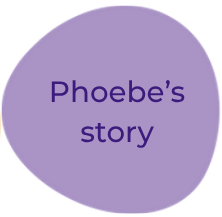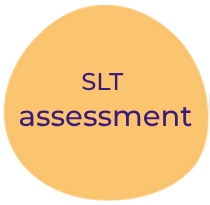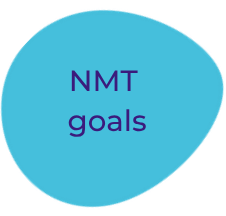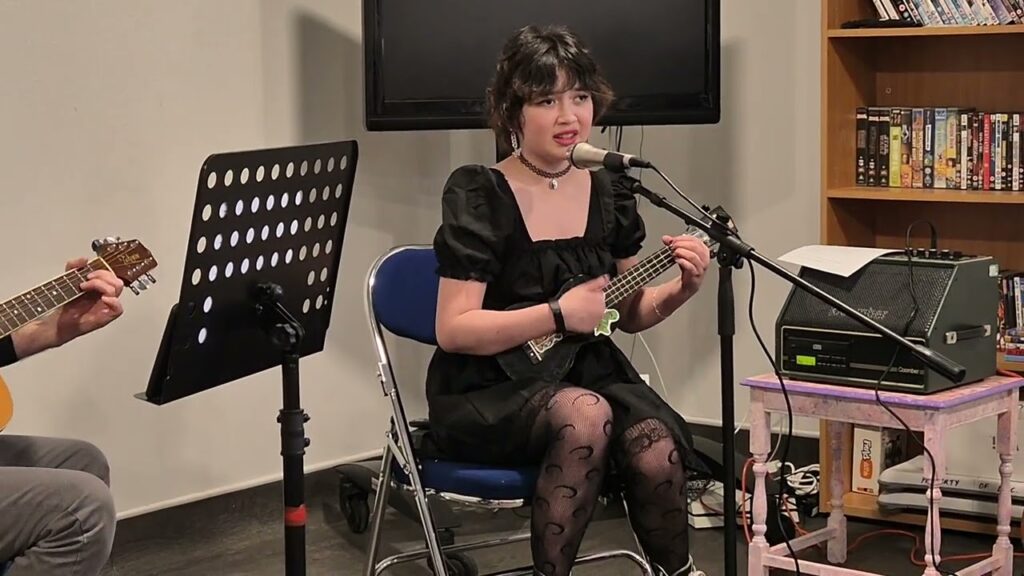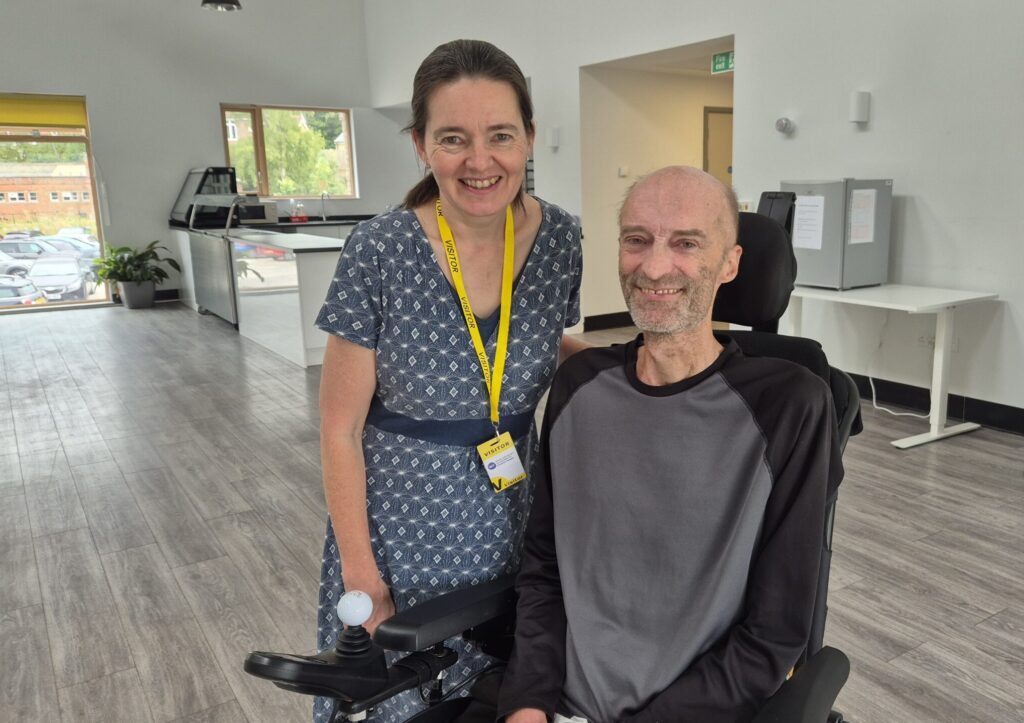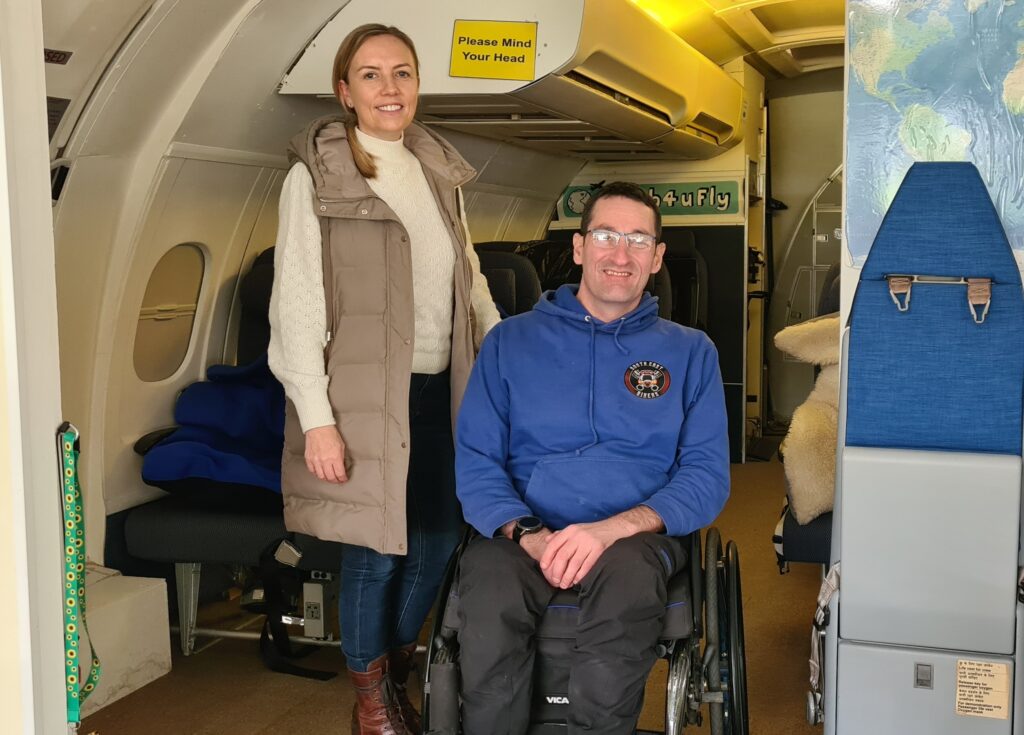An indepth read of Phoebe’s experience at QEF. Phoebe in her own words outlines her story and the multi-disciplinary therapy she received at QEF, with music as a focus for therapies and a personal motivator to improve her communication skills.
QEF’s Speech and Language Team also detail her clinical assessment and therapy plan, which involved Neurological Music Therapy, setting out clear goals and objectives, culminating in a performance of three of Phoebe’s favourite songs to staff, family and clients on her last day with QEF.
One of Phoebe’s biggest achievements was learning to stop masking her difficulties behind humour and asking staff to stop and explain something in a different way, which has also helped everyone supporting Phoebe to better communicate with her.
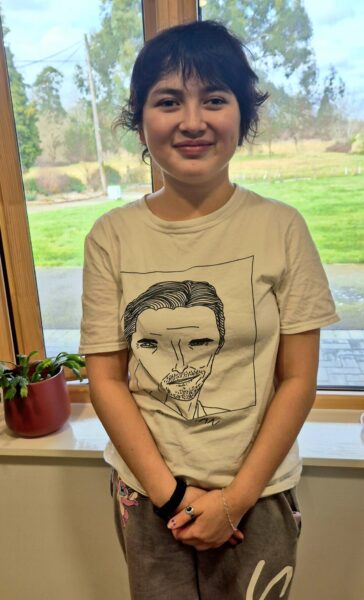
Phoebe’s story in her own words:
“I’m 18. I came to QEF in February after being at The Children’s Trust for a while before I turned 18. I was diagnosed with lupus when I was13 /14 and I was OK for a while. Then when I was 17 I had quite a few seizures – the first time I couldn’t talk or walk. I had several.
When I had my first seizure my face was very dark red and I couldn’t move my hands, they were very stiff, so we went to the doctor. We were there alot as the the seizures kept going. I was sick for quite long time.
At the Children’s Trust we were working on the same stuff really, my speech, hands, the OT is different here though, we do more practical stuff like cooking.
I came here (QEF) in February and I am going home soon, so I have been here 2.5 months.
I love singing and I have been singing alot with Ram (Speech and Language therapist). I like to sing ‘Linger’ and ‘Que sera sera’ I am going to do a show for people on the day I leave. Singing is helping. First I was struggling to remember the words but I can now sing linger without looking at the words.
I know how to say things but I can’t easily find the words and reading can be tricky.
I was doing English Literature A’ Level, Computer Science and Music Tech which I loved. I was predicted to get A*s. I can’t go back to them right now but I hope to. Some were quite hard like English. I know the books really well but I don’t want to do something that I’m bad at now. The reading will be too hard. The singing one I will go back to.
I’ve had Occupational Therapy on my right hand. We’ve been working on strengthening it so I can pick things up and move them. I used my right hand to shake your hand today which was big for me. We’ve made things like pasta and we’ve baked and they’ve helped me practise putting my make up on with right arm. And we went out shopping in Leatherhead to buy new make up which was great.
After QEF I’m not totally sure yet. I’m hopefully going to college to do more music with the right support in place.
Time here has been good. Everyone is old and I’m not, so everyone likes me. All the staff are good. I have lots of chats with the care staff. I was the biggest at the other place so it’s a total change.”
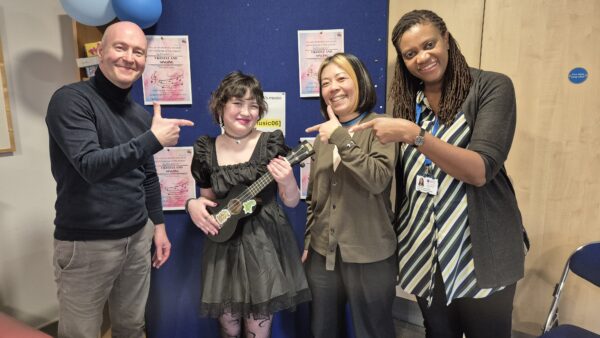
Speech and Language assessment
On initial assessment, Phoebe presented with moderate to severe expressive and receptive aphasia, characterised by significant word finding difficulties and an overlay of apraxia of speech – she would grope for words and had semantic, phonemic and neurologistic speech errors. She also had reduced understanding of complex instructions.
The biggest issue that affected her goal of being able to read for pleasure again was lacking phonological awareness and decoding skills for reading and writing. This means she struggled to manipulate sounds in all written words and her understanding that letters can change their sounds when used in other words, remained fragile. This was significant change for someone who was a straight A student and was on track for A*s in all her A levels at the time of her injury in English Literature, Music Technology and Computer Science.
I suspected Acquired Dyslexia and made enquiries with the British Dyslexia Association for a full diagnostic assessment. At the same time, Phoebe had an EHCP approved whilst she was at QEF, and this recommendation was carried over in the EHCP with 1:1 tutorial support for ongoing learning, so the cost would not be burdensome to parents.
However, prior to her seizure and brain injury, Phoebe was a great singer and performer, and this was observed to be a great motivator for her. Music played a huge part in all her therapy sessions. Using onset and rhyme to support learning and blending of words when reading and speaking, using lyrics from different songs to support re-learning sounds of letters, words and numbers. With the support of NMT, her passion to perform was reawakened and she re-learnt the lyrics to some of her favourite songs, through practice, practice and more practice.
Her Mum and Dad had reported that Phoebe would use her performance character to mask her difficulties a lot and distract herself. So, the biggest thing she has gained from QEF was learning to not mask her difficulties and to be honest with all therapists (SLT, NMT, Psychology, PT and OT) when she found something challenging. She was always encouraged to say to us all “STOP, I don’t understand”, which would force therapists to explain things differently, show first and let her copy or learn by observing and doing or get creative with her when relearning a skill. She pushed us out of our comfort zones as well and has taught me to be a better therapist for sure.
The end result of her speech and music therapy and confidence building was her performance on her last day at QEF, especially with the song Linger, which was word perfect. Her parents also reported that her communication has significantly improved, less word finding difficulties and hesitations when she speaks. Daily phone calls with her Dad where much more comfortable, with Phoebe being able to get to the target words much quicker and allowing her sense of humour to return in full force.
Her Dad strongly believes she would be a great advocate for aphasia rehab. Phoebe self-reported that interactions and conversations with close friends are much easier, which was one of her other goals. Phoebe has learned to accept what she can and cannot do and being honest with those around her allows them to support her better.
Phoebe’s ECP has been re-approved. Her family asked us to feed into it to ensure we asked for what she needs going forward. Now she is waiting to find out what provision can be put in place. We’ve asked for 1:1 tutorial support, someone who will support Phoebe with her reading and speech, either an educational psychologist or a SLT with specialist knowledge of what Phoebe’s got.
We have also asked for the advanced version of the Cactus therapy app, which is language therapy for people who have had a brain injury, such as language comprehension, reading, writing, speaking. Her Dad had found the free one and we have applied for the advanced one. We have also requested a Dyslexia diagnostic assessment for her reading so she can get specialist support to enable her to go back to college.
Neurological Music Therapy (NMT)
Phoebe was referred to NMT to improve her confidence and to improve her communication skills. Phoebe brought her ukulele to QEF and told everyone how much she loved music and playing the ukulele. We agreed to use the ukulele in joint sessions. I used both neurologic music therapy techniques as well as traditional music therapy input.
Phoebe’s aims and objectives were based on SLT’s assessment, discussion with SLT and Phoebe. Phoebe was always motivated to attend the sessions, as music is something that she enjoys and has a strong influence on her identity.
Aim1: To improve her confidence through successful music experiences using the ukulele.
Phoebe’s objective was to be able to sing at least one song while playing the ukulele without error. This was achieved beautifully as witnessed at her show. She did not present any errors at all and was able to play the ukulele with no mistakes. She gained her confidence through the process of practicing, organising and expressing her thoughts and asking staff for support her, and executing her performance.
Aim2: To improve her communication skills
Phoebe’s objectives were to:
– relearn words in song lyrics and use them in conversation,
– to identify consonants and be able to blend words using her familiar songs,
– to memorise ukulele chords and be able to use them while reading a song sheet
– to organise her free time and practice a song every day and memorise sections such as the chorus by the next session
Phoebe re-learnt some words from lyrics and has gained an increased ability to use these words in conversation. She will need to continue doing this to maximise the benefit of NMT. She also used familiar songs to practice reading and has re-learnt and gained the ability to play complex chords and to read chord charts if necessary.
Phoebe was able to make time to practice her songs and she sang all 3 songs beautifully in her final show for clients and staff.
At the beginning, Phoebe always masked her difficulties and avoided anything that she felt challenging by laughing and making noise so that she did not have to admit that she was struggling. However, she quickly realised that masking would not help regain or improve her ukulele performance and gradually she was able to face her difficulties as she wanted to play the ukulele again!
Music gave her immediate feedback that helped her focus and be honest to herself – you can hear the wrong chord immediately, but the sound disappears. She was able to say “I don’t know, or I don’t understand” without losing her humour or motivation to be able to play music.
Phoebe pushed us out of comfort zone and taught us the importance and joy of joint work that includes other therapists, other staff members and other clients! She did not hesitate to approach another client who was an excellent ukulele/guitar player in QEF to “play a gig” with her that everyone enjoyed, including staff and other clients.
